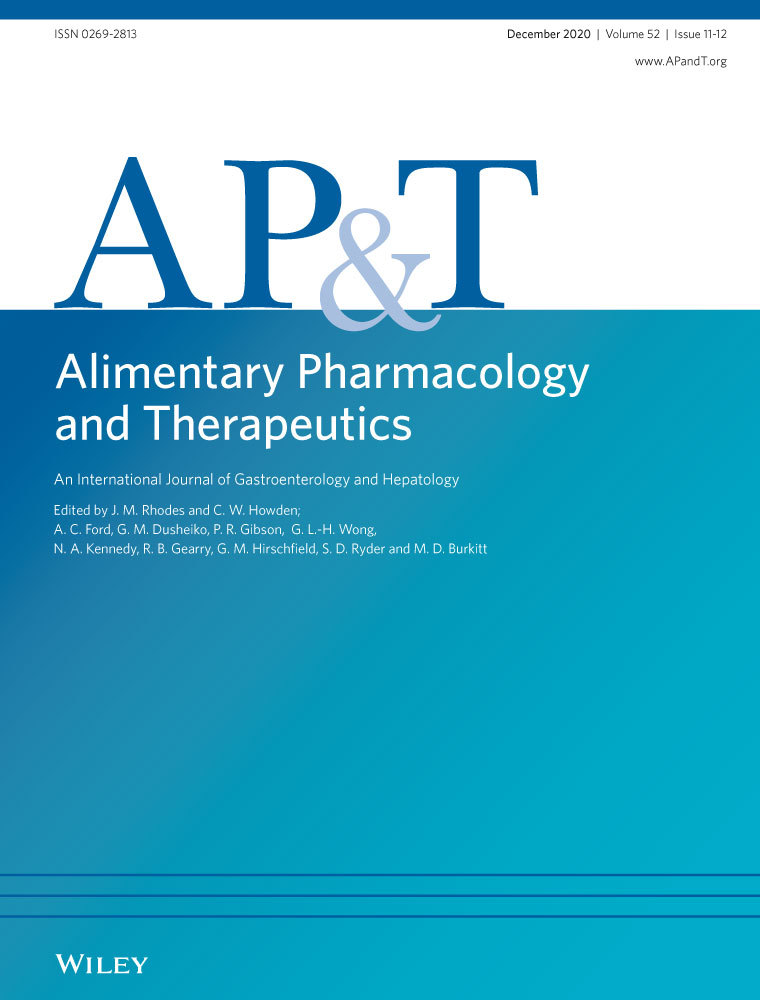Letter: faecal microbiota transplantation for irritable bowel syndrome—which improvements are required?
Abstract
LINKED CONTENT
This article is linked to Lahtinen et al papers. To view these articles, visit https://doi.org/10.1111/apt.15942 and https://doi.org/10.1111/apt.16122
Lahtinen and colleagues showed in a randomised controlled trial (RCT) that a single infusion of healthy donor faeces to the caecum of patients with irritable bowel syndrome (IBS) resulted in a transient improvement of symptoms after 12 weeks.1 Although the transient nature of the outcome seems disappointing, the study provided crucial information for future successful faecal microbiota transplantation (FMT) in IBS patients.
The study of Lahtinen et al has been commented upon by Segal et al and Ianiro et al, who suggested several topics of investigation for improving the outcome of FMT in IBS.2, 3 These included the donor, the dose of the faecal transplant, the route of FMT administration and the issue of single or repeated transplantation.
The RCT of El-Salhy et al showed that the clinical characteristics of a good (super) donor were being athletic (trained for 1 hour five times weekly), a non-smoker, healthy, drug-free, having a normal BMI, born via vaginal delivery, breastfed and having taken antibiotics only a few times. All of these criteria are known to exert positive effects on the intestinal bacteria.4 Since the genetic composition contributes to the formation of the intestinal microbiota, the donor chosen was not related to any of the patients in that trial. Moreover, since dietary modifications and nutritional supplements also influence the intestinal microbiota,5 the donor's diet was compared with those of 35 healthy subjects, and was found to be within the normal range for those subjects. However, the donor regularly took dietary supplements rich in proteins, vitamins, fibre and minerals that made his diet richer in those substances.4 The donor in the study of Lahtinen et al was healthy with a normal BMI, born via vaginal delivery and had not taken antibiotics during the previous year.1 This means that only four of the 10 clinical criteria were fulfilled, and so it is too early to draw any conclusions about the usefulness of selecting the optimal donor based solely on clinical features.3 We agree with Ianiro et al that identifying a microbial signature for the good (super) donor would be helpful,3, 6 but only one RCT has compared the bacterial profile of the donor with healthy subjects.4 Selecting a good donor is tedious and time-consuming, but it is rewarding.
The dose of the faecal transplant seems to be important for the outcome of FMT in IBS. Seventy percent of IBS patients who did not respond to a 30 g of transplant responded when they received a 60 g transplant.7 Preliminary results from our ongoing clinical trial (www.clinicaltrials.gov, NCT04236843) show that increasing the transplant dose from 60 to 90 g does not improve the response to FMT, and hence a dose of 60-90 g seems to be optimal, and that there is no difference in outcome between the transplant being delivered to the duodenum or caecum.
We agree with Lahtinen et al that comparing FMT studies is challenging due to variations in the selection criteria of the donors and FMT protocols.6
ACKNOWLEDGEMENT
Declaration of personal interest: None.




